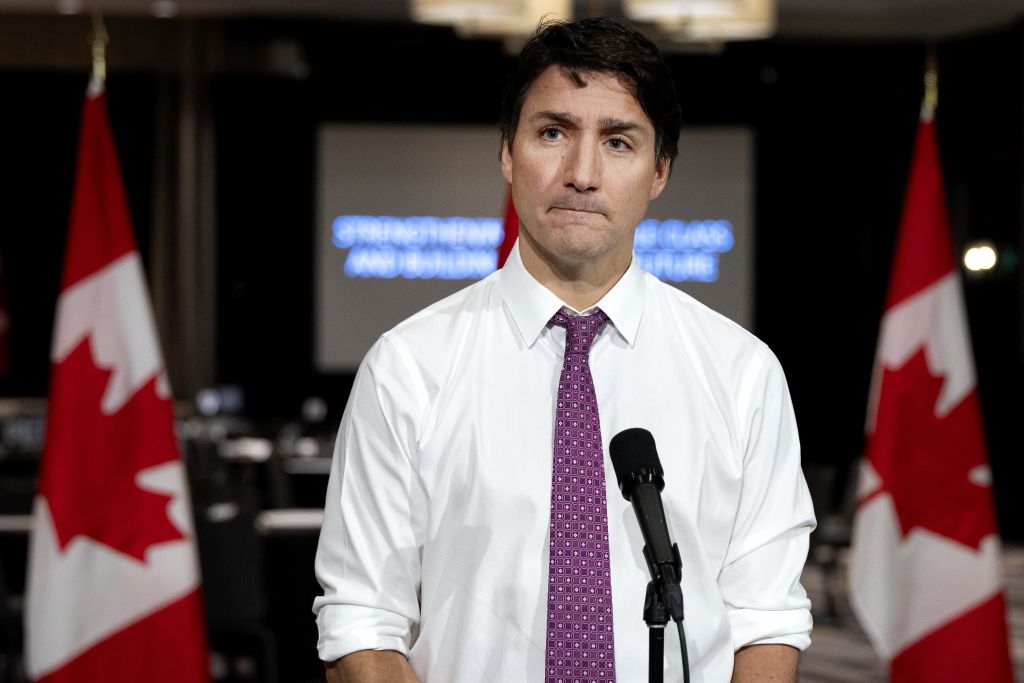Canadian politics has been thrown into further uncertainty this week. Jagmeet Singh, leader of the Left-wing New Democratic Party (NDP), announced that he was terminating the supply-and-confidence agreement which has sustained Justin Trudeau’s Liberal minority government since March 2022, adding that the ruling party is “too weak” and “too selfish” to stand up for ordinary Canadians.
The move comes on the heels of pressure from Conservative leader Pierre Poilievre, who called on Singh to break with the Prime Minister and trigger an election. The NDP has, however, stopped short of pushing for a confidence vote that could potentially topple the government. This ambiguity on Singh’s part leaves open the possibility that Trudeau’s Liberals could subsist by negotiating legislative support on a case-by-case basis.
Poilievre has called Singh’s gambit a mere “stunt” that may not actually alter the balance of power very much. The Trudeau-Singh agreement produced a number of reforms at the NDP’s behest, including expanded dental care and pharmacare options, but these policies have failed to move the needle for either party as both the Liberals and New Democrats have struggled in the polls for months.
The same polling trend lines point to an impending electoral wipeout for both of Canada’s progressive parties, with Poilievre’s Tories set to be the beneficiaries of any early election. The Conservative leader has been angling for an electoral battle centred on Trudeau’s unpopular carbon tax, which he has tied to the country’s cost-of-living crisis.
Polls show the Conservatives gaining ground across nearly all regions and demographics, making some analysts wonder what Singh could possibly gain from an autumn campaign. The NDP, currently polling in third place, may be looking to establish distance between itself and the Prime Minister before it can fundraise and establish a new political narrative. Singh could try to reclaim the party’s traditional role as a working-class standard-bearer against the forces of the business establishment, to which both Liberals and Conservatives have been partial.
Indeed, one source of tension between the two parties in recent weeks has been clashing positions on labour union issues. One example is a recent railway strike which the New Democrats have strongly supported against Trudeau’s new Labour Minister Steven MacKinnon, who issued a binding arbitration to the industrial relations board as a means to ending the strike action. Singh called the move “cowardly, anti-worker and proof that they will always cave to corporate greed”.
A looming strike from the country’s flag carrier Air Canada threatens to drive yet another wedge between the New Democrats and the Liberal government. Meanwhile, Poilievre has looked to profit from division on the Left by selling his own pro-worker message; though the Conservatives stayed largely silent on the recent strike, they have tried to pivot on such issues as “anti-scab” legislation, which they recently came out in support of. As in the US election, it is looking as if the working-class vote will be pivotal in deciding the next Canadian government.
At the federal level, Canada has only ever known either Liberal or Conservative rule, with the NDP serving as the traditional third party (though with 24 seats, it is technically now the fourth party after the separatist Bloc Québécois with 32). The party has often played the part of kingmaker, though it will be exceedingly difficult now to reprise that role given that its cohabitation with the Liberals has turned off millions of Canadians to the prospect of continued progressive governance. Rather than resetting the narrative, Singh’s action may have merely hastened a political outcome that has been years in the making: the Right coming to power in Ottawa and the Left coming to ruin.











Join the discussion
Join like minded readers that support our journalism by becoming a paid subscriber
To join the discussion in the comments, become a paid subscriber.
Join like minded readers that support our journalism, read unlimited articles and enjoy other subscriber-only benefits.
Subscribe